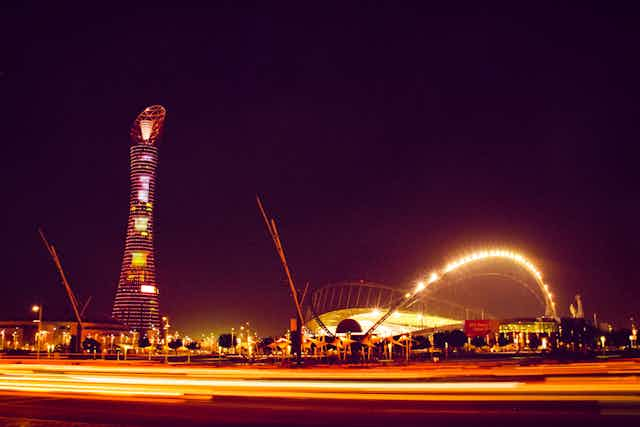Qatar has just introduced a “charter” to protect its migrant workers; will anyone notice the difference?
Migrant workers represent around 88% of Qatar’s 1.9m residents, and the numbers are set to increase as the country gears up to host the 2022 World Cup. Ambitious construction and infrastructure projects will largely be built by migrants, who are vulnerable to abuses by unscrupulous employers.
This is a problem neither unique to the World Cup, nor to Qatar. Last year, neighbouring Abu Dhabi was put under the spotlight because of alleged ill-treatment of migrant workers in the construction of Saadiyat Island, the city’s new cultural centre. This led to a series of new labour laws which ended cash payments and required employers to set up bank accounts for all their workers. The digital trail makes it harder for businesses to scam employees out of their wages.
But it is Qatar that has come under the closest scrutiny. The World Cup has brought intense pressure from the media and international organisations to address migrant workers issues in the country. Late last year, stories of the poor working conditions at World Cup constructions sites made headline news around the world.
Understandably, the reports prompted FIFA to intervene and it pressed Qatar to come up with tangible measures to improve workers’ conditions.
Tangible measures?
Qatar’s World Cup authorities have now delivered the much anticipated reform – The Workers’ Charter. This document mandates contractors and sub-contractors to provide good living conditions, timely and regular payment, equal treatment of workers regardless of background, adequate health and safety measures, and prohibits forced labour and human trafficking.
Both the European Parliament and the International Labour Organisation (ILO) welcomed the charter as a major step in the right direction, and experts on regional labour issues in the region are cautiously positive.
But haven’t we been here before? Sceptics would be right to question whether anything is fundamentally new here.
Well, the charter is actually the culmination of work that has been going on for a while. What’s new is the backdrop against which it has been launched. The World Cup represents a turning point in how Qatar is perceived, a chance for the country to show off to the rest of the world.
Three issues
Beyond the good intentions, there are three key issues: whether the charter will be enforced; how employers not directly involved in the World Cup will react to it; and what its impact will be beyond Qatar.
The empirical evidence on the impact of such charters is patchy, but there are reasons to believe that the workers’ charter stands a good chance of being enforced. Qatar worked very hard to win the chance to host the World Cup and cannot afford the continuous bad publicity associated with poor treatment of workers on construction sites.
Enforcement will mainly be carried out through the selection and retention of contracts, with the government having the power to withdraw from deals involving businesses with unfair labour practices.
It is more difficult to know for sure how employers who aren’t directly involved in the tournament will respond. Businesses in the Gulf often oppose labour protections, arguing they lead to higher costs of production and subsequently undermine their competitiveness. But the implementation of the charter may provide real-world evidence to show that treating workers well benefits the bottom line.
But for best practices to spread beyond World Cup employers, reforms must be championed by a critical mass of high profile organisations. This will create a momentum for change and inspire others; no one wants to appear to be against the fair treatment of guest workers.
Will it have an effect outside Qatar? Other Gulf states will now be closely watching how the charter is implemented and enforced. Dubai, for instance, is hosting the 2020 World Expo and will be keen to see if there are lessons to be learned.
The charter is start in the long road of reforms. The government is very keen to address the issue of migrant labour and with eight years left to the world cup, the external pressure is only going to intensify.

